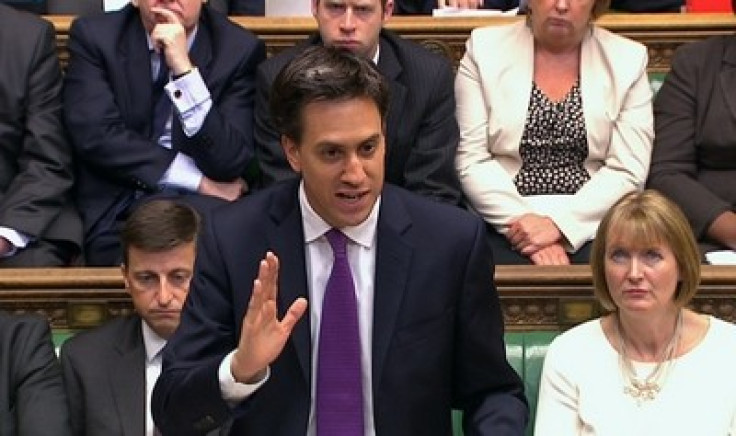Blair's Message to Politicians like Ed Miliband: 'Get a Proper Job First'

It is a defining characteristic of the modern True Brit to ridicule their politicians for being a rare breed of hand-reared pedigree chumps, entirely cut off from real life and with no understanding of what it is like outside the Westminster village.
David Cameron, Ed Miliband and Nick Clegg have never been forced to work a 30-hour day down a crumbling coal mine with only a canary for company and all for a pound a week.
Their entire lives have been a preparation for the only job they ever considered and, probably, could ever manage to do without causing themselves an industrial injury. In an earlier age they might have gone into the priesthood.
The awful truth about this Monty Pythonesque description is that there is more than a grain of truth in it. So is it time the political parties started examining the fingernails of would-be MPs for signs of good, honest grime before allowing them anywhere near the reins of power?
Former Labour Prime Minister Tony Blair highlighted the issue during a question and answer session in London when asked whether there was any chance of the party having a future leader who was not a former special adviser.
The questioner did not name Ed Miliband, but he didn't have to. Blair's response was: "This is not a specific point at all, because I support Ed's leadership and I support what he's doing, but I think there is a general problem in politics, not just in our system but in Western democracy. It's a far bigger topic this. But, I do think it's really important.
"I advise any young person who wants to go into politics today: go and spend some time out of politics. Go and work for a community organisation, a business, start your own business; do anything that isn't politics for at least several years. And then, when you come back into politics, you will find you are so much better able to see the world and how it functions properly."
It is a point many both inside and outside politics are making increasingly loudly. Just look at the current crop of senior politicians and it is hard to find anyone who has done a job outside the Westminster village.
Old Etonians
The route often followed is University, political party research department, special advisor, safe seat, MP. Not exactly representative of society as a whole and, in fact, not the route followed by many, probably even the majority, of politicians.
But look at the parties' top teams and that path to power seems to be over represented. As, indeed, are the new breed of Old Etonian/Oxbridge graduates. The same, by the way, is true of the media but that's another story.
It is a sweeping generalisation, of course, but perceptions are everything and the growing perception outside Westminster, and underlined by Blair, is that there is now a professional political elite drawn from an increasingly narrow background and, as a result, entirely incapable of empathising with the people they are supposed to represent.
There have been only-slightly tongue-in-cheek suggestions that there should be an age limit of, say, 35 or even 50, before anyone is allowed to stand for parliament. That might bring some much-needed experience and alleged maturity into Westminster but it probably would not do much to encourage young people to engage.
There is, as Blair said, a hugely serious point here. Some of the more basic errors of judgement made by David Cameron, for example, have been put down to his lack of experience of the "real world".
He may have worked briefly in the media, which really doesn't count, but like so many of his contemporaries he rose through the Tory research department to become a ministerial special adviser before going on to contest the leadership.
Ed Miliband's geekiness is often attributed to the fact he has been raised in a closed political hothouse environment both at home then, later as a Labour researcher and special adviser.
So what is to be done? Blair believes that US-style open primaries for the selection of candidates is one answer and it might stop the sort of alleged union stitch ups that have marked some Labour party selections.
But that seems to miss the point. What is really needed is a radical change in the political culture, something that encourages "ordinary" working people to believe they could become MPs, possibly after decades at work, and would not be vetoed because they don't look or sound like a politician or party hack.
Only the political parties themselves can provide the answer by widening their net and, perhaps, consciously ruling out anyone who does not have direct experience of the "real world". Good luck with that one.
© Copyright IBTimes 2024. All rights reserved.






